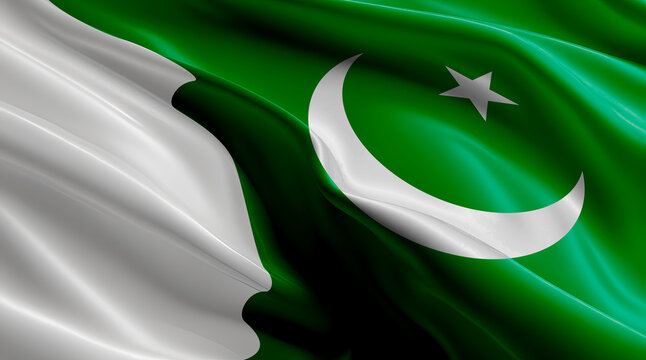Pakistan is undergoing a pattern of growing military involvement, unceasing political crises and deepening economic grievances. It is not as if the country does not have economists, but in Pakistan economists do not make policy, the hybrid civil-military leadership does. What is even more interesting about Pakistan’s economic policy is that it has historically prioritised the role of the military establishment.
Historically, the military has played a dominant role in Pakistan’s governance, often stepping in during times of political instability. Since its creation in 1947, Pakistan has been under military dictatorship spanning a total of 34 years. When not directly in power, the military elite have discreetly engaged in hybrid regimes, exerting influence on civilian governments from behind the scenes. This trend has continued in recent years, with the military exerting influence over economic decisions and policy-making.
The military’s involvement in economic policy is often justified as a means to ensure stability and support the civilian government. However, this has led to a dependency on external aid and limited Pakistan’s autonomy in shaping independent economic policies. The military’s strategic orchestration in political processes, such as elections, further highlights its influence. The current economic challenges, including high inflation, food and energy shortages, and the risk of debt default, have only intensified the military’s role in economic decision-making. Despite claims that the military does not want direct intervention during economic crises, its influence remains strong.
Plagued by economic challenges, in August 2023, the Shehbaz Sharif government rushed a bill through the parliament to amend the Board of Investment (BoI) law and constitute the Special Investment Facilitation Council (SIFC) — a ‘hybrid’ civil-military forum created to attract investment from the Gulf countries — anticipates the civilian leadership’s failure to ensure policy predictability, continuity, or execution. At the same time, the initiative has “institutionalised” the army’s increasing role in the country’s economic decision-making.
The army has a significant role in the new council, with the army chief being a member of its apex committee along with the prime minister. An army official acts as the director general of its executive committee and its national coordinator. The body’s implementation committee is also headed by an army officer.
But Pakistan’s security policies have limited its options for economic engagement. The Pakistani military’s dependency-oriented foreign policy has reduced its list of friends and benefactors, leaving it with only a few options for global economic engagement.Anti-Americanism and a warped view of ‘independent’ foreign policy have led to the perception that with China at its back, Pakistan does not need to prioritise its other relationships. Regarding financial assistance to Pakistan, the Gulf states are shifting their strategy. They are now prioritising the diversification of their own economies, anticipating a transition away from fossil fuels in the future. Their aim is to engage in strategic investments rather than providing grants driven by ideology. Consequently, they are emphasising the need for structural and policy reforms in Pakistan before extending financial support.
In addition to the military’s poor economic decision making, is its huge commercial empire with an estimated value of billions of dollars, referred to as the ‘milibus’. Author Ayesha Siddiqa has examined in detail Pakistan’s military economy and the consequences of merging the military and economic sectors. According to her, ‘Milbus,’ or the military’s ‘internal economy’, is military capital that is used for the personal benefit of military personnel, especially officers, but is neither recorded nor a part of the defence budget. Its most significant component is entrepreneurial activities that are not subject to state accountability procedures. In Pakistan, the military is the sole driver of Milbus – and is an example of the type of Milbus that intensifies military interest in remaining in power or in direct/indirect control of governance. Military capital used for the personal gain of military personnel perpetuates the military’s predatory political style.
Siddiqa asserts that the value of public resources transferred to the military increases with increased military involvement in the economy and influence over state and society, incentivising the military to continue strengthening its power. The armed forces encourage policies and policymaking environments that increase their economic returns, and the accumulation of wealth also buys additional power, further contributing to feudal authoritarianism. The economic interests and financial autonomy of the military elite has played a vital role in persuading them to push for an independent status, strengthening the military politically, organisationally and psychologically.
Over time, the military’s economic interests have gained prominence. This includes military-owned businesses, significant onshore and offshore land and property holdings, influence over defence contracts, as well as alleged involvement in ventures linked to the China-Pakistan Economic Corridor (CPEC) projects.
Between 2011 and 2015 alone, the army’s assets grew by 78%. By 2016, the armed forces in Pakistan ran over 50 commercial entities, including public sector organisations and real estate ventures worth $30 billion. Today, their commercial assets are worth over $39.8 billion.
The recent turmoil in Pakistan also serves as a poignant reminder of the considerable power wielded by the military. Amidst an enduring economic and fiscal crisis with high rates of inflation and unemployment, and sometimes acute food, water, and energy shortages, Pakistan’s military establishment continues to retain dominant influence over economic policies.

